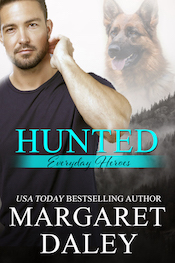Most of our characters have a career. This can be built up in a book or played down, depending on what is needed for your story. A soldier will know certain things an accountant usually won’t know. A policeman may react differently in a situation than a doctor. When developing what career your hero will have make sure it will support the plot. If he is called on to do certain things in the story, he should have the expertise or the story will become unbelievable. Also, how the character talks will often depend on his career choice. A policeman’s jargon is different from a college professor of biology.
Often a career is what brings the hero and heroine together. Example: In GOLD IN THE FIRE, my October Love Inspired, Joshua was the arson expert for his fire department and the heroine’s barn was torched. That’s the way they met. In THE POWER OF LOVE, my first Love Inspired, the hero was the police chief who brought the heroine’s son home when her son skipped school.
A person’s career choice can project a certain image you may want to carry throughout the book. Example: In LIGHT IN THE STORM, my April 2005 Love Inspired, the hero is a minister. That profession will govern how he acts, especially in a small town.
In each of these professions certain types of people are attracted to the professions in the first place. A police officer usually approaches life differently from a minister. A soldier will react differently than an accountant.
Here, I might add, you can use his career to project a facade at certain times, and yet underneath that, is the real character. One of the best examples of that is Indiana Jones. He’s a professor of archaeology at a college, giving boring lectures to a bunch of students, and yet many times his life is one adventure after another–not what you think of a college professor and someone who digs in the dirt for clues to the past. Of course, I think the character of Indiana Jones has changed how we look at archaeologists.



